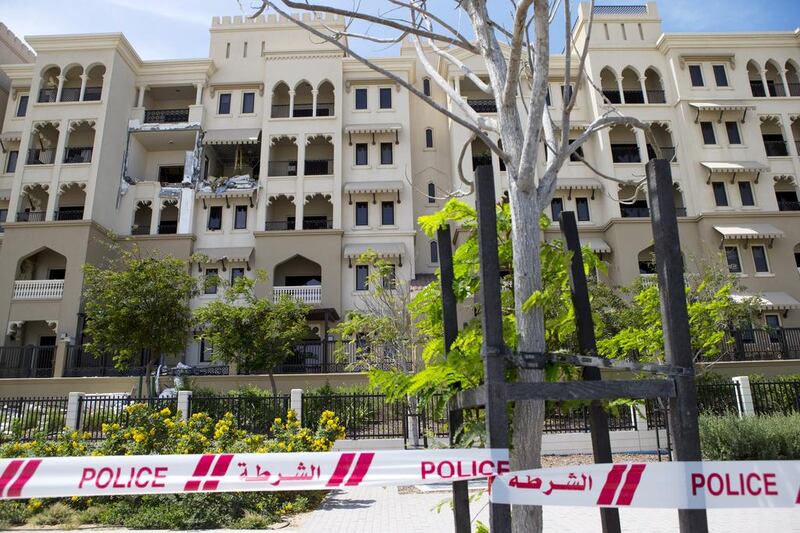ABU DHABI // Two days after a gas explosion at a Saadiyat Island apartment block, residents on the most extensively damaged floor are still waiting to return home.
They are staying at the Anantara Eastern Mangroves at the expense of the Tourism Development and Investment Company (TDIC), which manages the building.
Many residents have reservations about returning until they can be assured that their homes are safe.
On Tuesday evening, resident Barry Johnson, a manager at Etihad Airways, sustained burns when the gas blast tore through his fourth-floor flat. He is in a stable condition at Mafraq Hospital.
Some residents were given the all-clear to return on Wednesday evening.
Ioannis Xenakis, a fifth-floor resident, was given the clearance for him and his family to return to their flat.
But he refused to do so until he was given assurances that such an incident would not happen again.
“I was asked to move back in today and if I refused TDIC won’t be paying for my stay any more,” he said.
Mr Xenakis said he was offered discounted rates to stay at the hotel. He spoke to the manager in charge and sought assurance that his flat was safe to return to.
“I need to know that the infrastructure, the gas, the electricity, everything is functioning according to safety standards,” he said.
“I don’t know if those kinds of assurances are offered, but how else can I guarantee the safety of my family?
“I’m in a predicament because I want to move back but am afraid to do so until I have some peace of mind and assurances from the building’s management.”
Mr Xenakis, who is also an Etihad pilot, said the airline offered its assistance. Other residents, he said, were also apprehensive about their safety.
L R, a fourth-floor resident who will not have to return until the clearance is given, said he saw some neighbours leave the hotel, possibly because their flats were not as badly damaged as his.
“I was able to go to work today. My life is slowly getting back to normal, but I need to get back to my home,” L R said.
“I honestly don’t know how much repair is required but I really hope that it won’t be long. Some normality in our daily routine would be great.”
Meanwhile, the Civil Defence Department has asked the public to take precautions and follow the safety and precautionary measures to secure gas canisters at home.
It offered guidelines to prevent fires caused by gas cylinder explosions.
The department said it was important that people did not turn on light switches or ventilation switches if they suspected there was a gas leak.
The ensuing spark could cause the gas to explode when the light switch was turned on, it said.
The department also encouraged families to ensure gas cylinders were kept in secure locations, and out of the reach of children.
Gas cylinders should not be exposed to direct sunlight. The safety of gas lines, ovens and the availability of fire extinguishers were all important considerations.
Kitchen ventilators that trap grease could overheat and ignite – a main reason for fires in homes and restaurants.
As such, it is important to have well-lit kitchens to spot potential hazards.
Parents should also pay close attention to their children and their whereabouts in the event that the youngsters expose themselves to dangers at home and outside.
nalremeithi@thenational.ae






